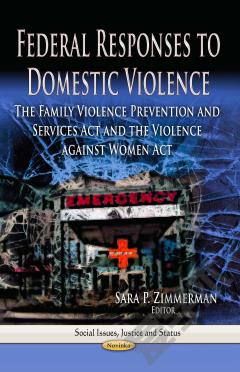Family-Based and Violence Against Women Provisions of U.S. Immigration Policy
Family reunification is a key principle underlying U.S. immigration policy. It is embodied in the Immigration and Nationality Act (INA), which specifies numerical limits for five family-based admission categories, as well as a per-country limit on total family-based admissions. This book provides an examination of family-based immigration policy. In doing so, it outlines a brief history of U.S. family-based immigration policies, discusses current law governing admissions, and summarizes recommendations made by previous congressionally mandated committees charged with evaluating immigration policy. The Immigration and Nationality Act (INA) also includes provisions to assist foreign nationals who have been victims of domestic abuse. These provisions, initially enacted by Congress with the Immigration Act of 1990 and the Violence Against Women Act (VAWA) of 1994, afford benefits to abused foreign nationals and allow them to self-petition for lawful permanent resident (LPR) status independently of the U.S. citizen or LPR relatives who originally sponsored them. This book provides further detail on both family-based and violence against women provisions of the United States immigration policy.
{{comment.content}}








 京公网安备 11010802027623号
京公网安备 11010802027623号